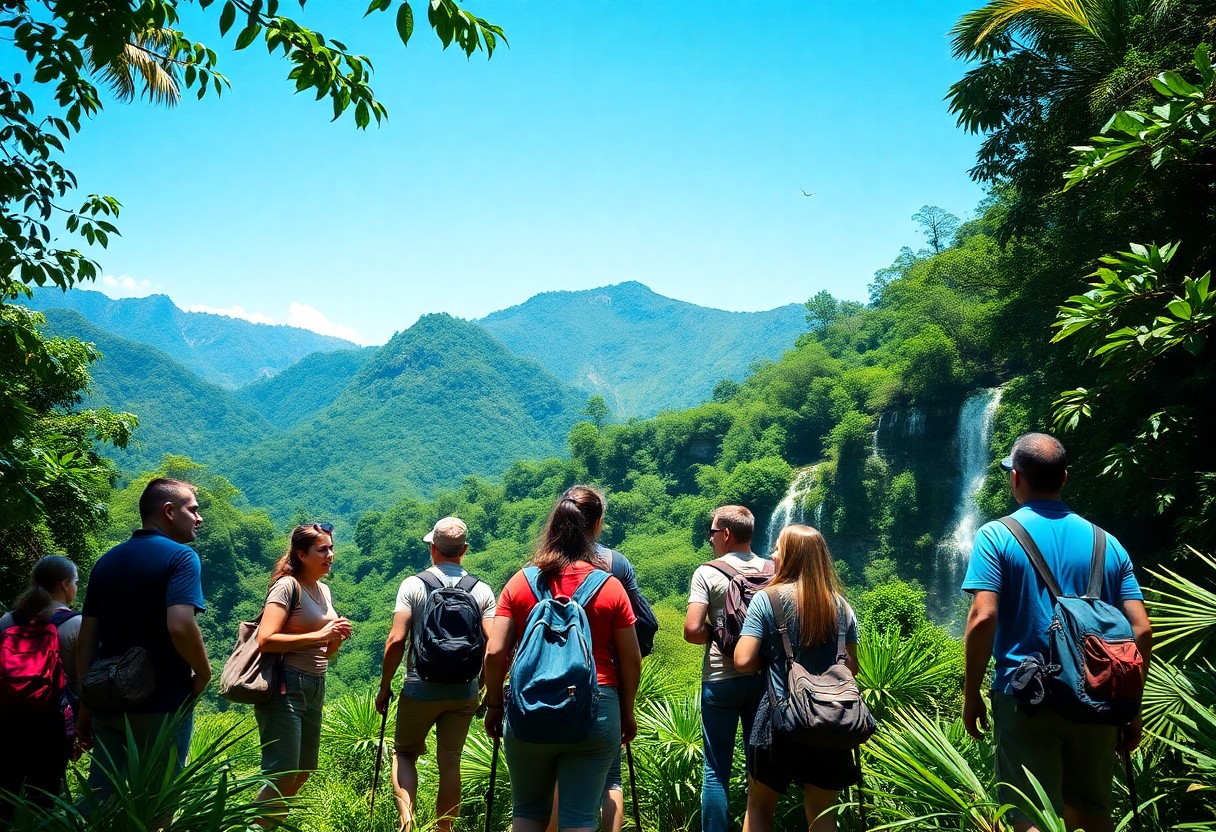There’s a growing recognition of how eco-tourism can profoundly impact your understanding and appreciation of the natural world. As you engage with stunning landscapes and diverse wildlife, you not only gain insight into the delicate balance of ecosystems but also recognise the importance of conservation efforts. By exploring destinations that prioritise sustainable practices, you contribute to preserving nature while enriching your own experiences in ways that redefine your relationship with the environment. This journey fosters a deeper respect for nature’s gifts and highlights the responsibility we all share in protecting them.
The Definition and Principles of Eco-Tourism
To truly appreciate eco-tourism, you must understand its core definition and underlying principles. Eco-tourism is not merely about travelling; it is a form of sustainable travel that aims to conserve natural environments and promote local cultures. You engage responsibly with nature, ensuring that your activities do not harm ecosystems. The principles emphasise environmental education, sustainability, and respect for local communities, allowing you to immerse yourself in nature’s bounty while fostering a spirit of conservation and appreciation for the world’s rich biodiversity.
The Role of Eco-Tourism in Conservation Efforts
Before engaging in eco-tourism, you should understand how it plays a vital role in protecting natural habitats and endangered species. By choosing eco-friendly travel options, you contribute to vital funding for local conservation projects that work to preserve biodiversity and restore ecosystems. This responsible tourism fosters a sense of community involvement and promotes sustainable practices that can reduce environmental degradation. Your choice to participate in eco-tourism can significantly impact both the local environment and the overall health of our planet.
Educational Experiences and Nature Appreciation
For many, engaging in eco-tourism provides valuable educational experiences that deepen your understanding of the natural world. By participating in guided tours and workshops, you can gain insights into local ecosystems, wildlife behaviour, and conservation efforts. These experiences not only enhance your appreciation for nature’s intricate balance but also empower you to become an advocate for protecting our planet. As you witness the fragility of these environments, you’ll be inspired to adopt more sustainable practices in your own life, fostering a strong connection with the earth and its bountiful offerings.
Community Involvement and Sustainable Practices
If you engage in eco-tourism, you foster community involvement and sustainable practices that benefit both nature and local cultures. By participating in local initiatives, you contribute to preserving the environment while supporting local economies. Your involvement helps conserve natural resources and promotes awareness of ecological issues. Exploring this dynamic relationship can broaden your understanding of how how ecotourism benefits the environment and local communities. In turn, it nurtures a deeper appreciation for the beauty and diversity of our planet’s ecosystems.
The Economic Impact of Eco-Tourism on Local Communities
There’s a significant economic benefit to eco-tourism that extends beyond just financial gain. By choosing to engage in eco-friendly travel, you help stimulate local economies, as your spending supports small businesses and creates jobs in communities that may otherwise struggle. This influx of capital can lead to investment in conservation initiatives, improving infrastructure and preserving natural resources. However, without careful management, there is also the potential for over-tourism to disrupt local cultures and degrade the environment. Thus, your travel choices can play a pivotal role in shaping the future of these communities.
Challenges and Limitations of Eco-Tourism
Even as eco-tourism aims to foster a deeper connection with nature, it faces significant challenges that can undermine its objectives. Overcrowding in popular destinations can lead to environmental degradation, damaging fragile ecosystems. Additionally, local communities may not always benefit from eco-tourism revenue, potentially leading to inequalities. You must also be aware that some eco-tourism practices may inadvertently contribute to wildlife disturbance, undermining conservation efforts. Ultimately, by recognising these limitations, you can take informed steps to ensure your eco-tourism experiences are truly beneficial for both nature and local cultures.
Conclusion
From above, you can see that eco-tourism enriches your understanding and appreciation of nature’s bounty by immersing you in its beauty and complexity. As you engage with local environments, you enhance your awareness of biodiversity and the delicate balance of ecosystems. This hands-on experience fosters a sense of responsibility that encourages you to protect and conserve these natural treasures, ensuring they endure for future generations to enjoy. In contributing to sustainable tourism practices, you also support local communities, creating a harmonious relationship between enjoyment and conservation.
FAQ
Q: How does eco-tourism contribute to raising awareness about environmental issues?
A: Eco-tourism plays a significant role in promoting awareness of environmental issues by offering educational experiences that focus on natural ecosystems and biodiversity. Tour operators often incorporate information about local conservation efforts, endangered species, and habitat preservation into their tours. This approach helps tourists understand the ecological balance and the impact of human activities on the environment. As visitors engage with nature directly, they become more invested in protecting natural habitats and advocating for sustainable practices.
Q: In what ways can eco-tourism foster local community engagement with their natural environment?
A: Eco-tourism encourages local communities to connect with their natural surroundings by involving them in tourism activities that highlight their cultural and ecological heritage. This engagement often leads to practical conservation efforts, as local residents are more likely to value and protect the resources that are integral to their livelihoods. By offering jobs in eco-tourism, communities are motivated to promote sustainable practices, such as responsible wildlife watching and plant harvesting, which can enhance both community well-being and environmental conservation.
Q: How can eco-tourism help individuals develop a deeper connection to nature?
A: Eco-tourism provides immersive experiences that allow individuals to explore and appreciate nature intimately. Activities such as guided hikes, wildlife safaris, or camping encourage tourists to slow down and observe the intricacies of ecosystems, fostering a deeper emotional and intellectual connection to the environment. This connection can lead to a greater sense of responsibility toward conservation efforts and inspire individuals to adopt more sustainable lifestyles upon returning home. Ultimately, these experiences reveal nature’s beauty and complexity, encouraging a lasting appreciation for its bounty.




